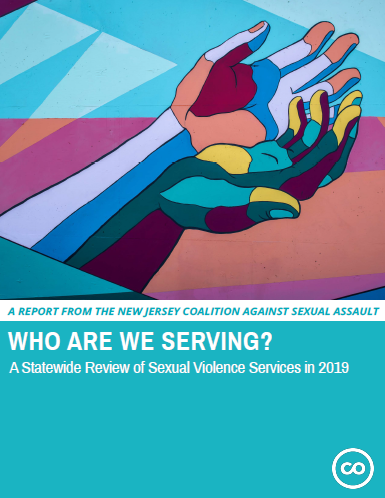“Who are we serving?”
Over the past year, this question guided our work to develop the first annual report on sexual violence service provision across New Jersey.
Throughout 2019, NJCASA collected data on service provision from New Jersey’s county-based sexual violence programs. “Who Are We Serving? A Statewide Review of Sexual Violence Services in 2019” uses this data to identify strengths and gaps in the provision of individual and group counseling, hotline services, community outreach, and Sexual Assault Response Team activations.
Findings from the report reveal that while programs served almost 20,000 New Jerseyans in 2019, a greater investment is needed to build capacity for programs to serve and fully respond to the unique needs of the 1.8 million survivors in our state.
Read the full report and executive summary.
The fact that 43 percent of sexual violence programs had a waiting list for counseling services in 2019 underscores this need. The report also shows an overreliance on volunteers, with an average rate of three volunteers for one paid staffer at each program, and critical gaps in the provision of services to marginalized communities.
In the report, we identify several barriers to holistic service provision in New Jersey and offer key recommendations for addressing these challenges. Our recommendations include:
- Increasing qualitative and quantitative data collection on service provision at individual sexual violence programs;
- Training program staff on the barriers presented by privilege and oppression for survivors from marginalized communities;
- Improving outreach to and establishing mutual partnership with historically underserved communities; and
- Implementing practices to recruit and retain staff that represent all communities in New Jersey.
We’re committed to working with New Jersey’s local programs to achieve these goals and ensure that every New Jerseyan has access to trauma-informed, survivor-centered services.






